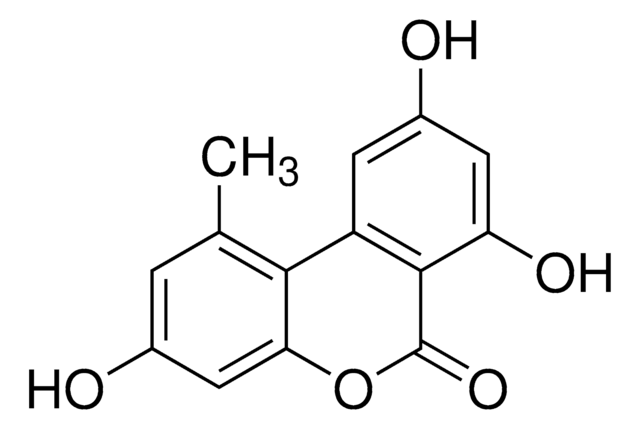A0737
N-acetylcysteine amide
≥98% (HPLC), lyophilized powder, antioxidant
Synonyme(s) :
(R)- 2-(Acetylamino)-3-mercapto-Propanamide, AD4, N-Acetyl-L-cysteinamide, NACA, acetylcysteinamide
About This Item
Produits recommandés
product name
N-acetylcysteine amide, ≥98% (HPLC)
Niveau de qualité
Pureté
≥98% (HPLC)
Forme
lyophilized powder
Conditions de stockage
desiccated
Couleur
white to off-white
Solubilité
H2O: ≥20 mg/mL
DMSO: >40 mg/mL
Température de stockage
2-8°C
Chaîne SMILES
CC(=O)N[C@@H](CS)C(N)=O
InChI
1S/C5H10N2O2S/c1-3(8)7-4(2-10)5(6)9/h4,10H,2H2,1H3,(H2,6,9)(H,7,8)/t4-/m0/s1
Clé InChI
UJCHIZDEQZMODR-BYPYZUCNSA-N
Application
- to protect retinal pigment epithelium (RPE) from oxidative stress
- to show that increased expression of cell adhesion molecule 4 (CADM4) in oligodendrocytes inhibits myelination
- to protect cells from apoptosis induced by shikonin plus erlotinib/gefitinib
- as a component in various culture media
Actions biochimiques/physiologiques
Autres remarques
Mention d'avertissement
Warning
Mentions de danger
Conseils de prudence
Classification des risques
Acute Tox. 4 Oral
Code de la classe de stockage
11 - Combustible Solids
Classe de danger pour l'eau (WGK)
WGK 3
Point d'éclair (°F)
Not applicable
Point d'éclair (°C)
Not applicable
Certificats d'analyse (COA)
Recherchez un Certificats d'analyse (COA) en saisissant le numéro de lot du produit. Les numéros de lot figurent sur l'étiquette du produit après les mots "Lot" ou "Batch".
Déjà en possession de ce produit ?
Retrouvez la documentation relative aux produits que vous avez récemment achetés dans la Bibliothèque de documents.
Les clients ont également consulté
Notre équipe de scientifiques dispose d'une expérience dans tous les secteurs de la recherche, notamment en sciences de la vie, science des matériaux, synthèse chimique, chromatographie, analyse et dans de nombreux autres domaines..
Contacter notre Service technique








